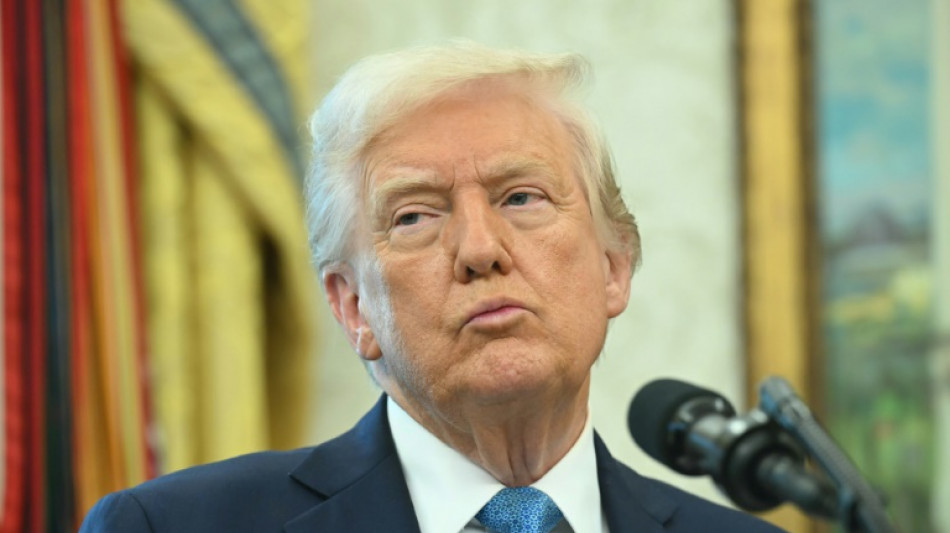President Donald Trump's various U-turns are leaving Americans disillusioned -- especially after he was elected on vows of guaranteeing economic prosperity.
He has floated wanting to fire the Fed chair before backing off for now, and he slapped tariffs on China only to then promise compromise and mollification.
"There is no chance the US flip-flops on trade the past month were remotely planned," Joseph Grieco, professor of political science at Duke University, told AFP.
"It's been one improvisation after another."
In a Pew Research Center survey conducted in early April, when President Trump was already downgrading his trade war with many countries to focus his ire on China, just 40 percent of respondents approved of his job performance -- a seven-point slide from February.
With the exception of Bill Clinton and now Trump, US presidents dating back to Ronald Reagan have had an approval rating topping 50 percent after their first 100 days in office, Pew noted.
However, the pollsters pointed out that the ratings for Trump, ever the divider who plays to his strengths, are essentially on par with those in 2017, at the same time in his first term.
- Majority dissatisfied -
Specifically, nearly six in 10 Pew respondents were critical of the Republican billionaire's trade policies.
Another opinion poll, by Reuters/Ipsos, notes that just 37 percent of Americans now say they are satisfied with the president's economic approach.
This is substantially below the upbeat numbers early in the first term for Trump, whose strong point, politically speaking, has always been the economy.
Results of a YouGov poll from early April reinforced the bad news for the real estate tycoon. A majority of Americans, 51 percent, were now dissatisfied with Trump's economic policies.
That was a four-point slide from late March, before his earth-shaking tariff announcements -- which were themselves followed a week later by a sweeping U-turn by Trump.
Absent a clear White House strategy, the world's markets are on edge, alternately soaring or plunging on the slightest remarks by Trump or his top officials on trade or monetary policy.
Such whipsaws have brought anxiety to millions of American investors, especially those whose retirement savings are in stock-related plans.
Concern only grew with the president's amped-up criticism of US Federal Reserve chair Jerome Powell, calling him a "loser" for refusing to cut interest rates.
The attack on the central bank's independence sent markets tumbling -- before Trump backed off, assuring on Tuesday he had no intention of firing Powell.
- Adulation, too -
It is virtually impossible to know how the trade confrontation with China will play out, even as Trump says the 145 percent tariffs he has slapped on the world's second-largest economy will be reduced sharply.
According to a recent Gallup poll, 53 percent of Americans believe their personal financial situation will worsen. Since 2001, the renowned polling organization has noted how most people it surveyed have expressed optimism about their wallets.
Increasing worry would translate to a reluctance to consume, which could slow economic growth.
While the major opinion polls reflect a growing mistrust of White House economic policy, most also agree that such pessimism has yet to reach Trump's core base of supporters, whose adulation of the president largely has remained strong through thick and thin.
In today's hyper-divided political America, 70 percent of Republican voters and Republican-leaning independents still support Trump's tariff hikes, while 90 percent of Democrats oppose them, according to Pew.
Y.Simons--LCdB
